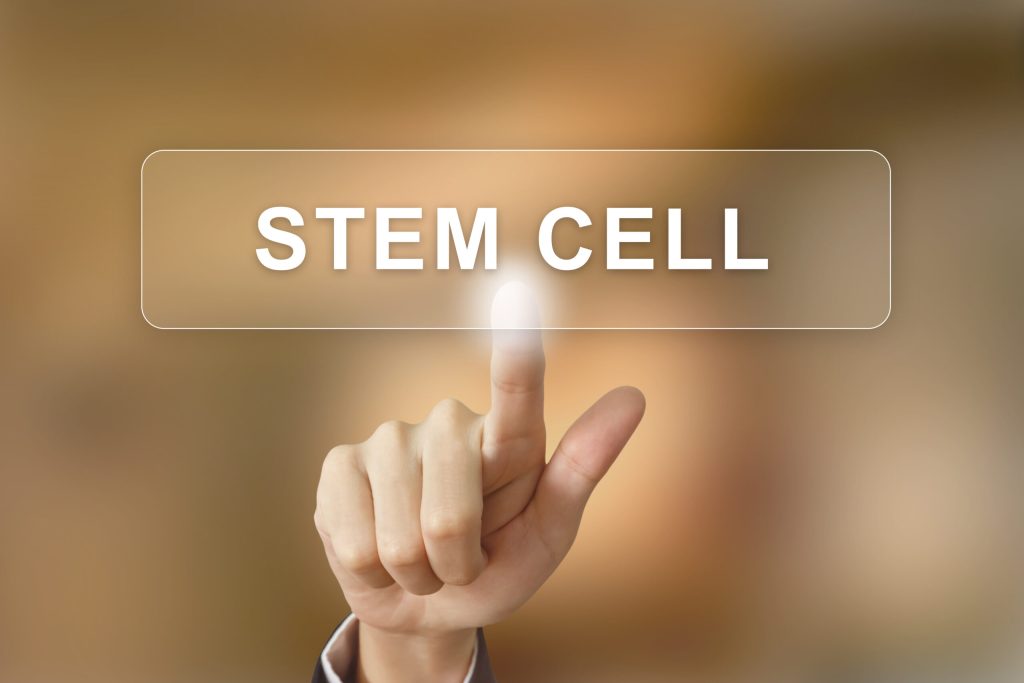What are stem cells?
One of our most promising breakthroughs in non-surgical treatments for arthritis and tendinopathies (tendonitis) at Raleigh Orthopedic Clinic has been the use of stem cells. Bone marrow and adipose tissue (fat cells) contain mesenchymal stem cells, otherwise known simply as ‘stem cells’. Stem cells have regenerative properties that can assist in healing your body in the most natural way.
Stem cells have the ability to become other cells in the body, and to morph into a variety of cell types including: osteoblasts (bone cells), chondrocytes (cartilage cells), myocytes (muscle cells) and adipocytes (fat cells). Stem cells are regenerative in nature.
Learn more about what stems cells are, by watching this film by TED Ed :
Current research is looking at how stem cells can delay progression of arthritis or possibly repair the body using its own natural response to damage. Since the cells can be harvested from your own body, they represent a natural way of healing.
Worldwide, stem cell therapy has been recognized by the medical industry as the biggest breakthrough in natural healing. When stem cells are injected into an area that needs healing, your body’s natural response is to accelerate the process and repair the damage.
Stem Cell Injections (Bone Marrow or Adipose Tissue)
It is a non-surgical procedure that involves the removal and then injection of your own naturally occurring stem cells. We concentrate stem cells from bone marrow or we use your own fat (adipose) tissue to harvest the stem cells.

What Are the Benefits of Stem Cells Injections at Raleigh Orthopaedic Clinic?
Stem cell therapy in orthopedics, a branch of regenerative medicine, is a natural form of therapy, which may help you avoid an invasive surgery. Constant progress in the field of orthopedics has proved the benefits and advantages of using stem cell therapies. Here are some of the health benefits linked to stem cell therapy in orthopedics:
- Promotes natural healing
- Avoids additional risk
- Prevents complications
- Ability to treat extensive conditions
Ask your doctor specializing in stem cells in Raleigh about how stem cell therapy can help in your condition.
The Process:
Our doctors have vast experience and knowledge when it comes to stem cells. Raleigh Ortopaedic Clinic is proud to offer our patients this innovative treatment option, performed by experts in the field. Your doctor will explain the procedure to you at length, but let us explain in short what the process involves.
The procedures for most patients are well tolerated. This non-surgical procedure begins by extracting the bone marrow or adipose tissue to harvest the stem cells.
The cells are then concentrated and prepared with specialized devices to remove any unneeded components, allowing for the stem cells’ effects to be optimized. The naturally occurring cells are then ready for injection into a joint, tendon, or bursa to assist its healing.
The harvesting of the stem cells at Raleigh Orthopedic Clinic can take 40-60 minutes, although the actual procedure is only a portion of that time. The process of concentrating stem cells takes 10-25 minutes.
The concentrated stem cells are then injected into the structures that a physician and patient would like to see healed. The injection can take 1-5 minutes depending on the specific structure/location injected.
Is it painful?
Pain is usually minimal and generally well tolerated. Local anesthetic techniques are used on the skin. However, anesthetics are known to deactivate some components, so clinicians have to purposely avoid using them when working with certain areas. The final site of injection typically has minimal pain.
What do I do before the procedure?
If you live in Raleigh, stem cell injections may be a perfect solution for your orthopedic conditions. However, in order for the procedure to be successful, you need to follow your doctor’s guidelines.
The main understanding that patients must obtain before the procedure is to avoid non-steroidal anti-inflammatories (NSAIDs) for 5 days before the procedure.
Examples include, over-the-counter medicines, like ibuprofen (Motrin) or naproxen (Aleve), and prescription strength NSAIDs, such as Mobic, Diclofenac, Arthrotec, etc. It is believed that these medications can decrease the effect of the healing process that we are trying to stimulate.
In most cases patients can drive themselves to and from Raleigh Orthopaedic Clinic where the procedure is performed. Work or sports may need to be avoided for a few days
following the procedure.
What happens afterwards?
Stem cell injections are designed to restart the healing process. Part of that process is restarting inflammatory actions. Therefore, most patients are sore for 2-3 days following the procedure. This can be a sign that the procedure is working. Icing for 10-minute periods, once per hour, may decrease soreness.
Over-the-counter pain medicines like Tylenol can be used for patients who do not have contraindications to that medication. In rare cases, the provider will prescribe other pain medicines.
Most people need to take 2-3 days away from any strenuous activity that involves the area of the body where the procedure is performed.
Often, rehabilitation exercises will likely be prescribed to start a few days after the injection. This may be done at home or formally with a physical therapist.
Raleigh Stem Cell injections
Call now to schedule your consultation with one of our physicians at Raleigh Orthopaedic Clinic to see if you may benefit from one of these advanced therapies, or to review your non-operative options! The consultation is covered by insurance. If you live in Raleigh, stem cell therapy is within your reach, don’t miss that opportunity! Check our other locations, as well, so you can schedule an appointment at the most convenient clinic for you.
The material contained on this site is for informational purposes only and DOES NOT CONSTITUTE THE PROVIDING OF MEDICAL ADVICE, and is not intended to be a substitute for independent professional medical judgment, advice, diagnosis, or treatment. Always seek the advice of your physician or other qualified healthcare provider with any questions or concerns you may have regarding your health.